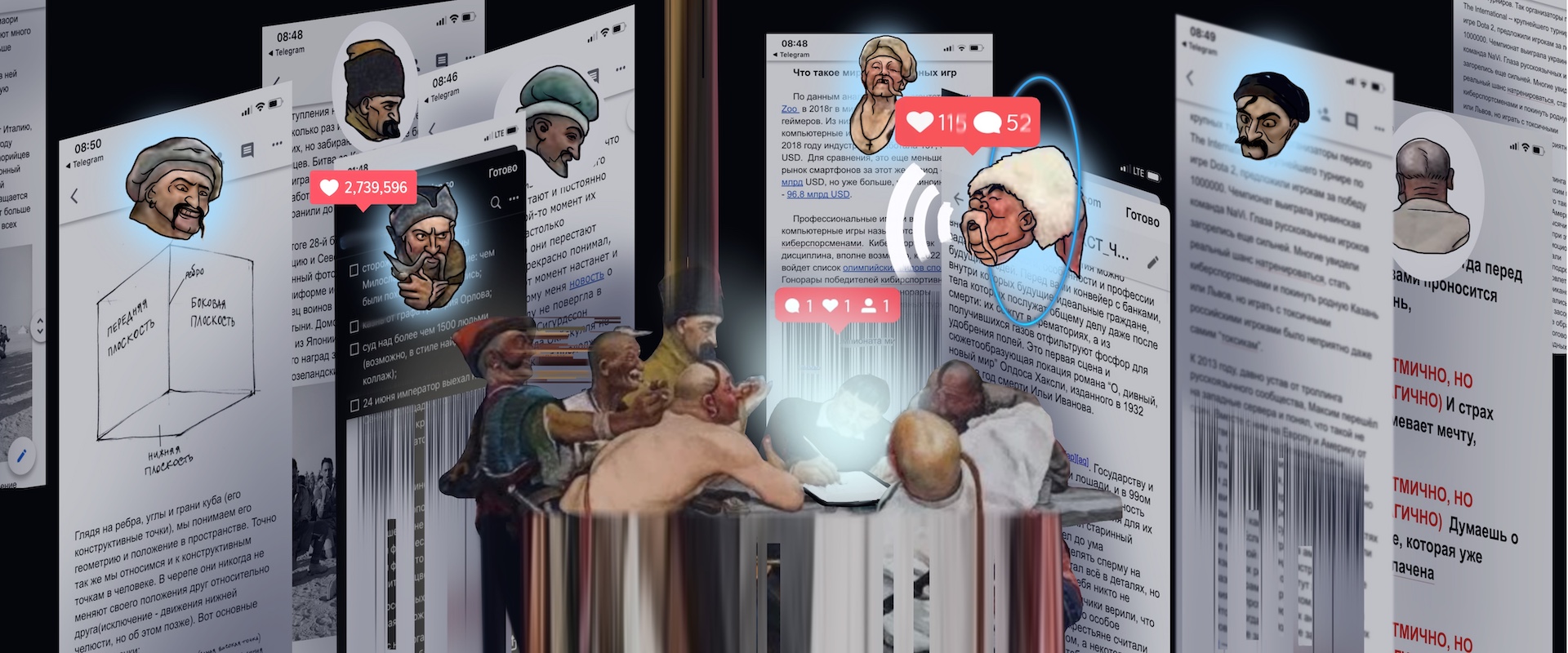
I deliberately do not want to name anyone's names and even “scorch” the authorship of my own remarks, since we, as #tyz editors, have already lost the habit of calmly expressing our thoughts on paper without careful rereading and rewriting. And I wanted to simply and honestly chat about what happened, what will be
- It's a bit early this year we announced the competition - does it make sense for the authors to send texts early and not wait for the deadline?
- Well, in theory, an article sent early can provoke us to a new nomination or some special prize, if it goes beyond the competition, but it will be cool.
- Have you read all the incoming articles at once?
- Almost.
- Heh. I’m more like one crowd. It was just that what was sent earlier was at the beginning of this pre-oo-o-lous list.
- And how did you read - "from and to" each article ?
- First I looked at the title, then I read the whole fluently, if I immediately saw that the text was weak or was simply terribly boring and uninteresting, then I closed it. Plus, he completely discarded advertising. And then I read it entirely thoughtfully.
- Yes, I also immediately discarded something. Blatant advertising, articles containing some kind of assaults, something frankly aggressive and offensive (the good of this is not enough) well, plus something completely from the "Captain Evidence" series. If there is too much copy-paste, then I also immediately rejected it. And if there is too much water, apart from the "Article with a lot of water" - there it was not a bug, but a feature. Well, I just did not skip further articles that were not written elegantly enough.
- I first look at the whole text diagonally - the heading, subheadings, design, then I grab some fragment (sometimes from the beginning, sometimes from the middle) to evaluate the syllable and presentation. And then I read it entirely.
- And, by the way, I also rejected articles with a shaft of grammatical and lexical errors .
- Directly so strict?
- Well, I will not minus a super article for a couple of typos. But the presentation and design are official criteria, so if there are a lot of mistakes in the text or there are no punctuation marks at all (and there was such a thing!), Then there is no chance.
- I, perhaps, not so categorical, we do not have a lesson of the Russian language nevertheless. But the impression deteriorates, the sediment remains, especially if the author has a steep technical expertise and, at the same time, mistakes of the level of "zhi-shi", it becomes a shame.
- It would be strange if most of the authors of Habr had perfect proofreading skills, but, I agree, the impression is blurred. And other things being equal, I will choose the one in which there are no problems with spelling and punctuation between the two materials.

- And look at the pictures ?
- Well, this is again my favorite "general impression". In my opinion, an article with illustrations is much more likely to get into the second round than an article in which the text is solid. In addition, pictures can provide the same wow effect at first glance and immediately grab attention.
- Yes, we live in the media world, which is often dominated by the Show not tell principle. The main thing is that "pictures to attract attention" should not be in themselves, but supplement the material.
- And they didn't replace it. I remember last year's article from a pizzeria about how they made some kind of interface - so this was not an article, but a comic of some kind: continuous screenshots with one-line paragraphs between them. Of course, I "cut" it at the first stage, after all, we have technoTEXT, not technopiccha.
- Oh, we need to introduce the "TechnoComics" nomination.
- If there are such articles as that, then it is better not. There was more text in one commentary to the article than in the "text" itself.
- By the way, about the comments to the contest articles - have you read them ? Admit it, did you succumb to the pressure of the masses?
- I rarely read, only when I doubted whether to put a plus or a minus.
- And I quite often, sometimes even before reading the material itself, especially if the article is hardcore-technical, - this helps to dive deeper into the topic and understand how well the author expresses his thoughts. But the pros and cons in the comments did not affect my assessment.
- In general, I still doubt how to evaluate hard articles in narrow-branch "Klingon" .
- Well, here just the comments helped to understand where the really strong material is, and where is just a set of high-tech expressions and words in an attempt to impersonate an expert. Although more often than not, if you read an article and do not understand anything, then it is good. No, seriously, what are you laughing at? I love these articles. As an editor, I can only evaluate the harmony of thought and the logic of connections in the text. What remains to be done?
- Well, intuition, editorial experience and all-knowing dudes in the comments helped me.
- Likewise, plus we have wonderful invited techie experts who ate the dog on this. Although I was a little sad when they chilled my ardor and gave mediocre points to some of my favorites.
- Understand. I’m still sad that the article about bees was not among the winners last year, it really sunk into my soul.
- Bees - yes, a non-standard temka for technical articles. In general, the big question is, which is better - a good presentation of a hackneyed topic or an average presentation of a new and relevant one ?

- Yes, it's a double-edged sword. The quality of the article itself and technical expertise are still in the first place. Although if the topic is already in everyone's mouth, it's about as bad as if you write about something new and cool, stumbling over every sentence. But then it also depends on the nomination - you can enter the "Best serve" with a banal topic.
- Look, the world is developing so dynamically now that it is easy to find a new non-trivial topic, so why get stuck on the well-known? Although "obsolete topic" is a specific criterion. What may not seem relevant and interesting enough now may become the most discussed issue in a month. So, on the contrary, I can even add points for the perspective of the topic, even if now it is far from the top.
In general, it seems to me that any topic (even the "populous" Data Science) can be disclosed in such a way that it will seem that there is still digging and digging. Still, new programming languages are not created every month, but in the "old" area, since the release of most articles, everything could have changed dramatically.
- If you write about the same thing for the hundredth time, then at least in terms of the wow effect, you will fail, especially if after the mega-cool title you understand from the description that the article is about “twice two is four”.
- Authors in general often have problems with the title and introduction, not only at the competition, but also at Habré in general. Okay, a headline is essentially a whole separate piece of fiction, and you need to have really strong literary skills to make something incredible out of it. But here's a weak introduction before a really cool, deep, strong article - it's sad. We, following the judicial duty, are likely to reach the "pulp", but for the average reader such an article will be "buried" because of an unsuccessful introduction. The rest of the article is usually about the same level, especially if the author has a normal clear structure of the material in his head, and not confusion.
- Errors can begin at the stage of selecting a structure or examples.
- Yes. Lacking, sorting out facts or material ...
- So, so, and “sorting out” with the text - how much?Where is the line between a solid longread and an article with many letters ?
- In my opinion, the optimal volume is from 7,000 to 15,000 characters. Most of the articles sent to the competition are 7,000-10,000 characters. Less than 7,000 is no longer an article, this is a note, and if much more, then maybe they will start reading it, but, most likely, they will not finish reading it. In the best case, they will jump from the middle directly to conclusions.
- Yes, perhaps something like that. Less than 6,000 characters is too short, 8,000-10,000 characters is optimal, more than 13,000 is overkill. Although this can be a trick.
- Do you think we have gone too far with the number of nominations this year ?
- Well, if the texts are sent the same as last year, then we will “close” all the nominations with worthy materials. Plus, we can re-qualify the article in another category and reward it in it. And communities this year have much more opportunity to influence the results. ...
- This innovation pleases me personally. I remember that that year every producer and editor had their own favorites in the DIY category and we watched the dynamics of the voices every day with great passion.
- And we also invited all the winners this year to the jury, to the “collective conscious”. And in general, here you are looking forward to the excitement, but give me "fresh blood" - I want to find new cool authors with whom I can work , as with some of last year's winners.
- Mind you don't eat newbies behind the scenes.
- No, no, what are you. Although I try to stir up and talk the guys who come to the event to celebrate the winners. Moreover, many people ask for feedback, but I like to give it "by voice" more, because sometimes what is written does not convey the intonation and emotional coloring that I put into it. I hope that this year, too, we will be able to communicate with everyone who will be shortlisted in person and no pandemic will interfere with us.
- Well, even if not, then we are always open to communication through mail, instant messengers and a personal. It remains to convince everyone that we do not bite.
Perhaps, on this optimistic note, I will finish the story about the judges' "kitchen" of TechnoText-2020, of course, at the end, once again duplicating the link to the competition.
Send articleshere , the deadline is November 10. We look forward to pleasant moments with your undoubtedly talentedly written article.
Your
content studio Habr